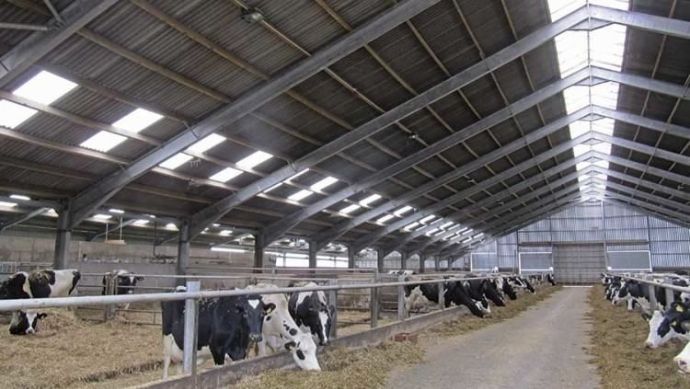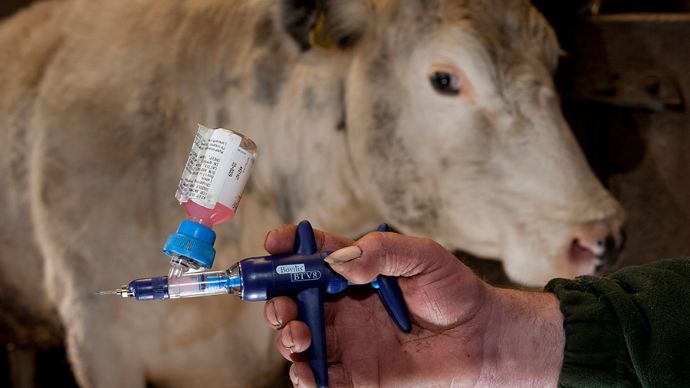
8 Tips To Keep Cattle Healthy During Winter
Take care of cattle in the cold season. You need to know to take proper care of cattle during winter.
Keeping your cattle healthy during winter is easy if you know how to take care of them. The health of cattle is influenced by factors like nutrients, environmental stress, and exposure to a pathogen. These factors are important throughout the year. However, in winter, it is more necessary to consider these factors to keep cattle healthy.
Adequate nutrients play a vital role in the health of cattle. When the cattle are healthy, they are less likely to get infected by diseases. So, you should provide cattle with all the required nutrients to raise them healthy.
Cattle health can be determined by observing their physical health. If the cattle are thin, this indicates that they are vulnerable to cold and may have weaker immune systems. In such a case, you need to take extra care of cattle to help get optimum nutrients.
Tips to keep cattle healthy during winter
1. Provide Feed
During winter, cattle should be provided with maximum feed. If they aren’t fed well, they won’t be able to generate enough energy, and without energy, they can’t generate enough heat. If the cattle are unable to keep themself warm, they can get infected by diseases and even die of cold.
There are many ways to keep your cattle happy in winter. You can switch to feed that has a high nutrient level. There are feeds that deliver guaranteed nutrients and have a maximum level of protein and fat that help generate energy in the body.
2. Water Is Important
Each cattle need at least 2 gallons of water per day. Even if the weather is cold, cattle need water for the proper function of their body. Healthy cattle are less likely to get ill. Even if the weather is extremely cold, water is necessary for the cattle to stay healthy. Dehydrated cattle are at risk of colic and impaction, so it is important to maintain the water level in the cattle to keep them healthy.
And most importantly, water has to be warm. You can install tank heaters in the water source to keep the water warm. Be sure that you follow the right installation process to avoid shock or fire. If you can’t install a heater, make sure you provide unfrozen water several times a day.
3. Well Facilitated Shelter
The safety of your cattle should be your priority. The shelter must have plenty of space, water, and food. During winter, you may not be able to take cattle to pasture all the time. So you need to be sure that the shelter has all the facilities for the cattle. When winter comes, it’s better to keep them near the barn to minimize the risk of cold.
To avoid cold wind, you can plant many trees around the shelter as they work as windbreakers. Three-sided sheds places in your pastures can help cattle to escape harsh weather. You also need to look at the weather forecast to know whether it is safe to allow cattle to graze in a pasture.
4. Look After Pregnant Cattle
Pregnant cattle have to be monitored carefully during winter. Consult with a veterinarian about any specific vaccine to be injected into pregnant cattle to keep them healthy through winter. Don’t forget to ask your vet about the supplement and feed requirement. During pregnancy, cattle will need special feed to stay healthy.
Also, pay attention to the weather, as pregnant cattle have to be shielded from the extreme cold temperature. And most importantly, they should have easy access to water and food. The best way to take proper care of pregnant cattle is by shifting them to paddocks for close monitoring. By doing this, you can provide them with the right nutrient, water, and shelter.
5. Biosecurity
Biosecurity is an important factor in raising healthy cattle during winter as well as summer. You need to consider biosecurity even if you are not allowing your cattle to contact with other animals. You should clean shelter once or twice a day to avoid the spread of disease from flies. Not just shelter, you also need to ensure the pasture area is clean.
If one animal in your shelter is sick, make sure that you clean the shelter more often. When cleaning the shelter, don’t just use water, you should also use soap. And if possible, you may also separate sick animals from the rest of the cattle to avoid the spread of disease.
6. Vaccinations
Talk to your vet regarding your cattle needs. Ensure that your vaccination program is up to date and proper rules are followed on what you are providing to your cattle to keep them healthy. There are certain things that you should know about vaccination. If you use the scour vaccine before calving, you need to plan for vaccination time.
Your veterinarian can help you with the vaccination process. Regular check-up is important to raise healthy cattle. Especially during pregnancy, vaccination is important for the health of cattle and babies. Whether it is winter or summer, vaccination is necessary for pregnant cattle.
7. Parasites
Cattle need to be dewormed so that they don’t carry internal parasites when entering winter. There is the right time in a year for deworming. Deworming time depends upon the area you live in. You need to consult a vet in your area or an expert to know the right time for deworming.
Cattle should be healthy before they go into winter. You will need a parasite control program to keep your cattle healthy during the winter season. You can also talk to people who are involved in the husbandry business to know when you need a parasite control program.
8. Provide Minerals And Supplements
Minerals are essential during winter because it impacts the metabolism of cattle. Healthy cattle need to have a strong metabolism. Their metabolism will slow down if they lack minerals. When metabolism decreases in cattle, they won’t be able to produce, and they may start losing body condition score. Therefore you need to ensure that you are providing feed that is rich in minerals as well as vitamins.
Giving cattle supplements that are rich in nutrients can lead to better forage digestibility. Cattle have certain mineral requirements, so providing supplements can aid in fulfilling the nutrient requirement. Though they get nutrients from forage, supplements are important to meet the nutrient level.



